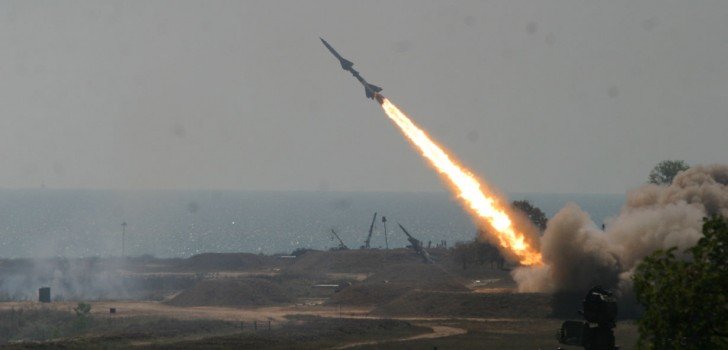Iran successfully tested its first ever precision guided ballistic missile with a range capability to strike its regional enemy Israel. The testing of the missile is expected to result in increased tensions in the Middle East especially after the July arms agreement that saw years of sanctions against Iran canceled in exchange for the stoppage of their nuclear program.
The new missile named Emad was successfully tested on Sunday with state news agencies airing the launch. According to Defense Minister Hossein Dehghan, “The Emad missile is able to strike targets with a high level of precision and completely destroy them….This greatly increases Iran’s strategic deterrence capability.”
Dehgan also said, “Our leadership and armed forces are determined to increase our power and this is to promote peace and stability in the region. There is no intention of aggression or threats in this action.”
Anthony Cordesman, an analyst from the Center of Strategic and International Studies, said the Emad had a range of 1060 miles and would strike targets with an accuracy of 500 meters. The increased precision is a break away from the Shaba 3 missile, which has a similar travel range but is only accurate up to 2000 meters.
According to Israeli missile expert Uzi Rubin, “The Emad represents a major leap in terms of accuracy. It has an advanced guidance and control system in its nose cone.”
Iran has increasingly been wary of an Israeli attack on their nuclear sites while Israel has expressed concern over a July nuclear agreement it says has the potential to allow Iran to create an atomic bomb.
The July agreement curbs the proliferation of Iran’s nuclear energy operations in exchange of sanctions being lifted. Israel is presumed to be the only Middle East country with a nuclear weapon.
In August, Iran unveiled a short range missile named Fateh-313. The missile boosted the country’s missile precision capabilities as it is made of a solid fuel allowing it to be put together and launched faster than other liquid fueled missiles.
Increased weapons creation and testing by Iran are a cause for concern for U.S. allies in the Middle East including Israel. Though the July nuclear agreement would have extensive nuclear inspections in the country, missile operations should be regulated to curb threats of hostile attacks toward neighbor states.
Stay Connected